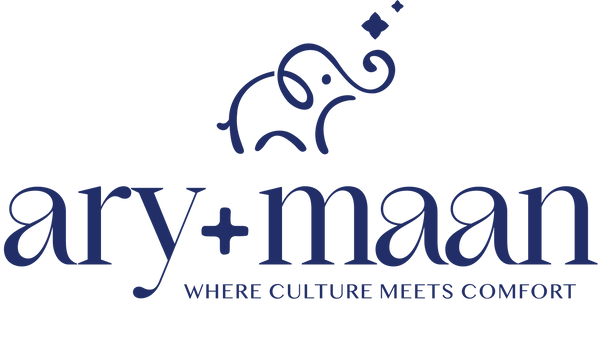For Alisha, culture has never been a simple label. It’s a living thread—woven across cities, languages, religions, and generations. In this episode of Ary + Maan’s Culture & Connection Series, we sat down with the Seattle-based, Sindhi-American storyteller and future mom to explore how it feels to grow up with a rich, but often underrepresented, South Asian heritage—and what it means to carry that legacy forward.
Born in Toronto to Sindhi parents and raised in Southern California, Alisha describes her upbringing as one of constant negotiation: between Indian values and American norms, religious tradition and personal choice, inherited expectations and modern ideals.
A Culture Without a Homeland
Alisha’s family traces its roots to Sindh—now part of present-day Pakistan. Like many Sindhi Hindus, her grandparents were displaced during Partition, becoming part of a community spread across continents but deeply protective of its culture. For Alisha, this meant growing up with a powerful sense of diasporic identity—but also without a clear "homeland" to return to.
“We’re so protective of our language and culture because we don’t have a place to go back to. It’s up to us to keep it alive.”
From a young age, Alisha connected to her heritage through dance, film, and music—her own chosen forms of cultural preservation. With a grandfather who was a well-known Sindhi writer, the importance of storytelling runs deep in her blood.
Navigating Interfaith Marriage & Shared Values
Now married to a partner from a different faith background (Ismaili Muslim), Alisha reflects on what it means to build a modern South Asian family that honors both of their roots. Language has become a central theme: while her husband's family speaks fluent Hindi, Alisha herself is still learning—and determined to ensure their future children speak it too.
“I may not be fluent, but I want our kids to be. I’ll take classes with them if I have to.”
Together, they’re reimagining tradition—from celebrating Diwali and Eid in the same household to creating new rituals around holidays, community, and food. And they're doing it without pressure or pretense—just a desire to help their future family feel grounded, joyful, and proud.
Rewriting What Family Looks Like
Alisha’s vision of family is refreshingly modern: equitable, expressive, and emotionally fluent. She speaks candidly about growing up with strict rules, unspoken taboos, and moments of tension—especially around gender roles. But rather than discard her cultural roots, she’s reshaping them with intention.
“I want our kids to feel they can come to us with anything. I didn’t always feel that growing up.”
That honesty extends into how she and her husband divide household responsibilities, share caregiving goals, and reject outdated expectations—while still celebrating the beauty of South Asian rituals, fashion, and food.
Style That Speaks Volumes
Alisha also talked about the emotional power of South Asian clothing—from family closets filled with lehengas and saris to the joy of dressing up for weddings and festivals. It’s more than fashion; it’s connection, color, and confidence all wrapped in fabric.
“I didn’t even realize how special it was until I saw how amazed my non-Indian friends were. We’re so lucky to have this world of design to express ourselves.”
She recalls organizing Diwali classroom celebrations as a child, bringing donuts and organizing impromptu fashion shows—and smiles at how far visibility has come.
Why This Story Matters
At Ary + Maan, we believe culture isn’t just about what we inherit—it’s what we choose to carry forward. Alisha’s story reminds us that honoring your heritage doesn’t mean doing everything the old way. It means making room for joy, voice, and evolution.
📩 Join our community to hear more stories like Alisha’s in your inbox.

